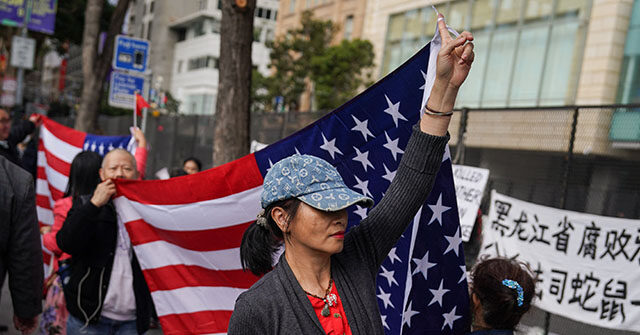Yaoning “Mike” Sun, a 64-year-old resident of Chino Hills, California, was arrested on charges of acting as an illegal agent of the Chinese government while attempting to influence local elections. U.S. Attorney Martin Estrada expressed deep concern over the allegations, emphasizing that foreign intervention in American governance is intolerable. The criminal complaint against Sun, unsealed following his arrest, details his role as the campaign manager for an unnamed city council candidate who won election in November 2022. The U.S. Department of Justice contends that Sun conspired with an alleged co-conspirator, Chen Jun, to secure the candidate’s victory, with links to the People’s Republic of China (PRC) seeking to bolster its influence over American political figures—particularly regarding Taiwan.
The complaint alleges that after the election, Sun was directed by Chen to prepare a report on the election outcome for Chinese Communist Party officials, suggesting that the PRC was pleased with Sun’s contributions. They allegedly continued their interference efforts by establishing a “U.S.-China Friendship Promotional Association” and providing political analyses aimed at the Chinese leadership, indicating a broader strategy to manipulate U.S. political dynamics. In early 2023, Sun sought $80,000 from the PRC to counter what he described as “anti-China forces” in Washington, further illustrating the seriousness of their endeavors to shape perceptions and legislation in favor of Beijing’s interests.
In August 2023, Sun and Chen traveled to China to meet with PRC officials, marking a continuation of their operation beyond the election. Notably, Chen, aged 71, previously pled guilty to attempting to bribe federal agents in a separate case targeting practitioners of Falun Gong, a religious group that the Chinese Communists have outlawed. This backdrop suggests a systematic effort by certain individuals associated with the Chinese government to undermine American institutions and promote governmental repression from afar, while attempting to influence political landscapes through illicit means.
The Chinese Foreign Ministry rejected any allegations of interference, claiming unfamiliarity with Sun and Chen, and accused the U.S. of being the party engaged in interference. This defensive posture highlights the ongoing tensions between China and the U.S., particularly regarding claims of sovereignty and proper governance. The Foreign Ministry’s comments underscore the complexity of diplomatic relations, where accusations regarding interference in domestic affairs are often met with rhetoric aimed at discrediting opposing viewpoints.
Speculation has emerged regarding the unidentified candidate associated with Sun’s campaign activities, with media coverage hinting at Arcadia city councilwoman Eileen Wang, who had listed Sun as her treasurer during her initial campaign filings. Further examination revealed Sun’s involvement in a media outlet called the U.S. News Center in collaboration with Wang, raising questions about the intersection of business, media, and political influence in local governance. However, attempts to reach Wang for her perspective on Sun’s arrest have thus far been unacknowledged, leaving a gap in responses to the unfolding story.
Overall, this case reveals the intricacies of foreign influence in U.S. politics, particularly at the local level, and serves as a stark reminder of the vulnerabilities present within the political system. As law enforcement delves deeper into allegations of such interference and unlawful associations, the ramifications of these events may resonate through various levels of governance. The situation emphasizes the necessity for vigilance against foreign entities attempting to sway political outcomes, as well as the importance of transparency in political financing and campaign practices. With international relations at a delicate juncture, cases like Sun’s will likely contribute to the ongoing discourse surrounding foreign influence in domestic affairs and the protective measures necessary to safeguard democracy.

